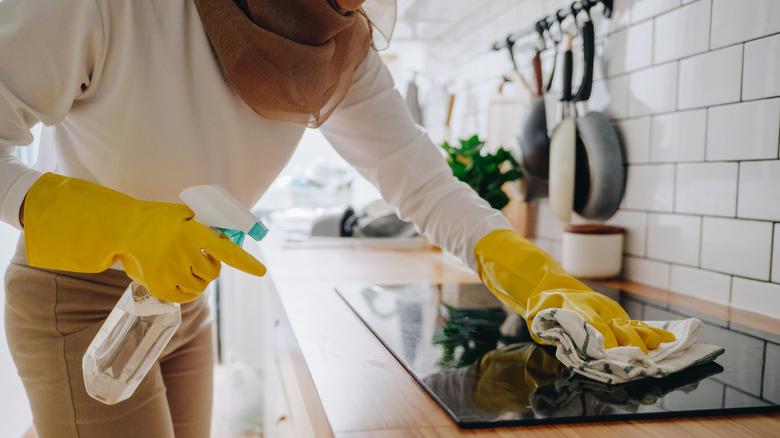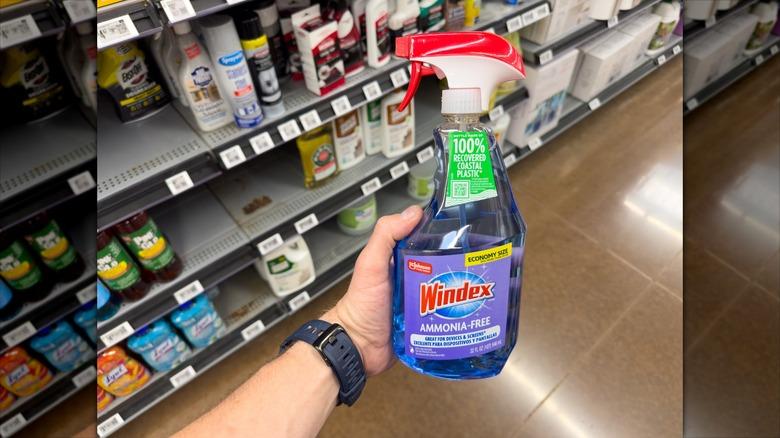How To Degrease Your Whole Kitchen Using A Common Household Cleaning Product
While cleaning the kitchen might not typically be the most hated chore, it can certainly become one when it requires a dozen different products. Having to do the mental gymnastics of which spray can be used on the countertops and oven door, but not on the painted cabinets is a surefire way to slow your productivity down and eventually make you dread the task altogether. This can be all the more frustrating if your kitchen surfaces are coated in a layer of sticky grease that many cleaners can't break down. That's why finding a product that can safely work on multiple surfaces is key, which we've found surprisingly in ammonia-free Windex.
The original Windex formula is great for giving a streak-free shine to some glass surfaces, but because it contains ammonia, a powerful cleaning agent, it can damage countertops, glass, and ceramic stovetops, and more. Many people prefer not to have any ammonia-based products in their homes altogether. However, the ammonia-free Windex formula is able to leave a gleaming sheen behind and contains a number of surfactants that are great at breaking down dirt and greasy deposits.
Grease-busting ingredients in ammonia-free windex
Before using any new cleaning product, it's important to give a look to the ingredients label. Per the SC Johnson website, the main cleaning agents in ammonia-free Windex include 2-Hexoxyethanol, Sodium Dodecylbenzene Sulfonate, and Lauramine Oxide. These work to eliminate dirt and grease by surrounding dirt particles, which makes them easier to pry off the surface when you wipe it down. It also contains Isopropanolamine, which deals with pesky residue from oils. This potent combo makes ammonia-free Windex ideal for cleaning a glass stovetop, as well as wiping down countertops and appliances.
While you can use ammonia-free Windex on a number of kitchen surfaces, you may want to be cautious about using it on others. For instance, when it comes to cleaning granite countertops and other natural stones, use a pH-neutral cleaner specifically made to safely treat stone. Additionally, be sure when you pick up your bottle of ammonia-free Windex that it's also vinegar-free. Even though it's natural, vinegar can also cause etching on some surfaces.

